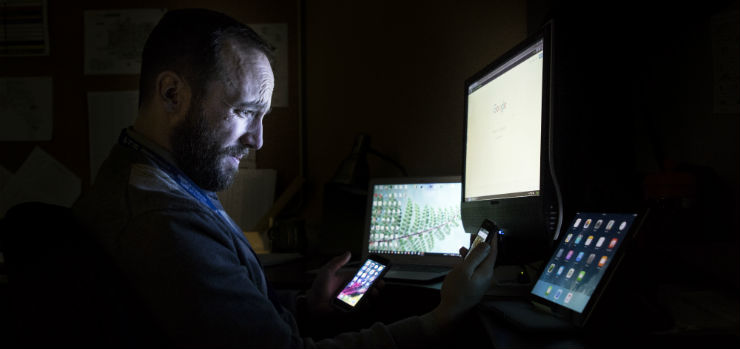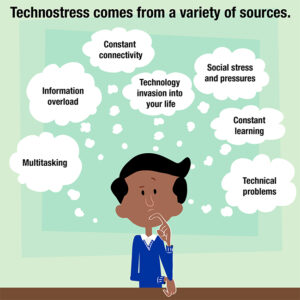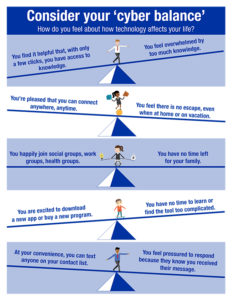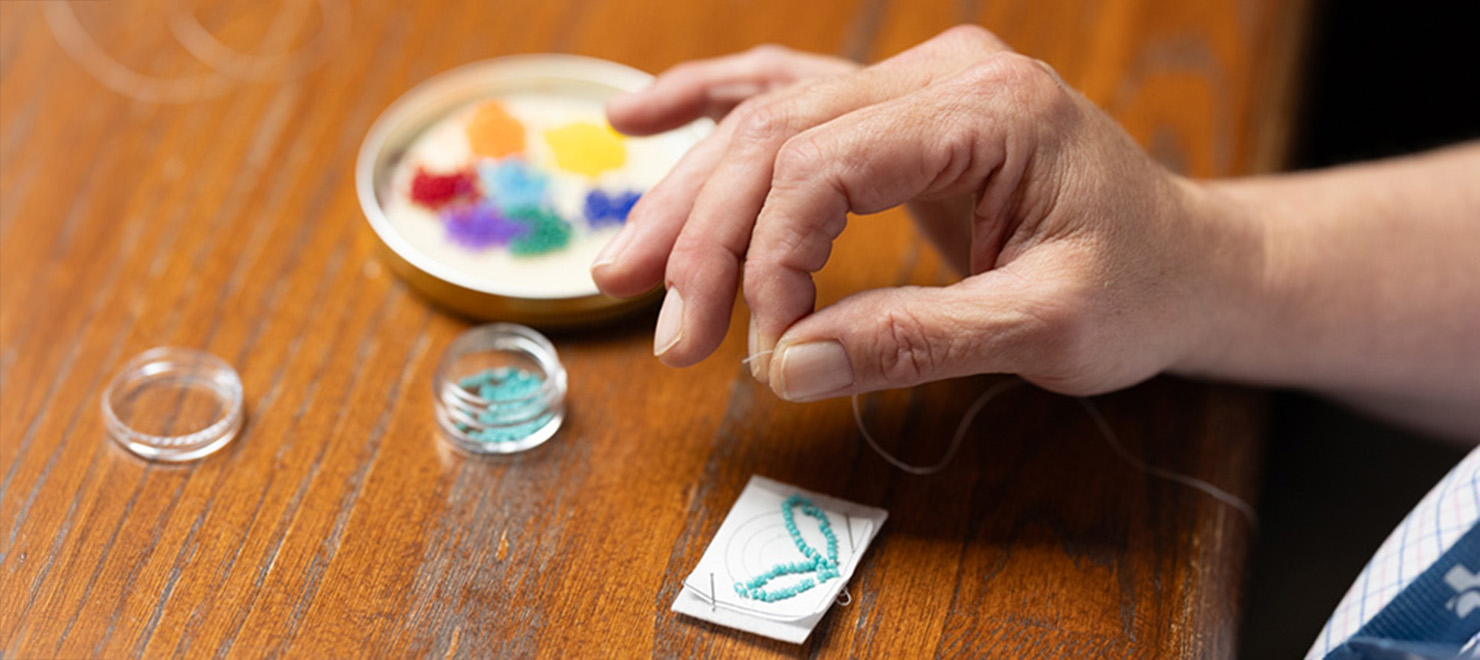
If you feel that technostress is interfering with your daily activities or your relationships, you may need to change some behaviours to make technology work for you.
Technostress can interfere with your daily activities or relationships. If you feel that’s happening to you, your coping system may need the free upgrade recommended by two psychologists at The Ottawa Hospital.
“Although this upgrade is free, you will need to take control and find the time to set up the supports,” said Psychologist Dr. Julie Beaulac.
Technostress, which can include feeling overwhelmed or anxious, results from technological overload.
“Indeed, technostress comes from a supply-demand mismatch, when the demands of our environment exceed our ability to meet those demands,” explained Psychologist Dr. Bryce Mulligan. “When change is constant or starts to happen more frequently, we struggle. Technological changes are happening more and more frequently. For some, this creates conditions for chronic stress, which lead to a variety of physical and psychological symptoms.”

The effects of technostress can be physical (such as headache, fatigue, eye strain, neck pain), behavioural (such as avoidance, social withdrawal, addiction), and/or emotional or psychological (such as irritability, fear, frustration, information overload, learned helplessness).
The first step is to consider how well you balance technology in your life. Are you technosavvy, technostressed, or somewhere in between?

Take a quiz to see how addicted you are to your smartphone or read an article on “Dealing with Technostress: Beware of letting the machines take over.”
Here are six key tips the psychologists recommended for balancing techno-perils and techno-pleasures.
- Create supportive environments. Ask friends or family to call instead of text. Set limits, such as telling others you will be offline at a set time. Delete unnecessary apps from your cellphone to reduce the visual traffic.
- Create conditions for focus. Set a time and place for periods of concentration. Turn off notifications. If your work doesn’t allow that, respond to what is urgent, rather than what has “beeped” most recently.
- Manage overconnectedness. Limit how often you check emails or webpages. Create filters for important emails. Protect your time – carve out family time with no technology and turn off social media.
- Use technology mindfully. Be intentional and selective when using the internet – don’t just browse because you can. Guide your own search rather than letting the pop-ups drive you. Choose in-person contact over internet contact. Take momentary breaks, such as looking outside or going for a walk in nature. Take longer-term breaks, such as vacations without devices.
- Prioritize self-care. Ensure you sleep well. Eat well. Move your body, as much as your schedule allows. Don’t underestimate the benefit of doing kind things for yourself, such as hobbies, recreational sport, meditation, music, art, and connecting with others in person.
- Use technology to support you. Numerous apps can help with self-care, relaxation, and screen time monitoring. Put technology to work for you, rather than against you.
To ensure that your coping system remains effective over time and with ongoing technological advances, you may need ongoing reviews and upgrades to help you continue to minimize technostress.

Support patient care and research at
The Ottawa Hospital
You might also like…
Living with chronic pain? This online tool offers help — and hope
The Power Over Pain Portal is a free virtual resource hub designed to help empower youth and adults living with chronic pain through education and peer support.
What to do in an emergency: New first aid video series on YouTube
Would you know what to do if you saw someone experience a stroke, heart attack or opioid overdose? We’ve launched a series of easy-to-follow videos on YouTube that walk you through how to respond to common first aid emergencies.
Flu season 101: A quick guide to keeping the sniffles away
Got two minutes? This short guide could help you make it through flu season without stocking up on tissues.
OnTrack program helps young adults experiencing psychosis find their footing
A unique program run by The Ottawa Hospital is celebrating 20 years of providing care and support to young adults navigating their first episode of psychosis.
Bringing communities together, one stitch at a time
In celebration of June being both National Indigenous History Month and Pride Month, The Ottawa Hospital hosted a beading workshop for Indigenous and 2SLGBTQIA+ staff and their allies.
Aging well: Guidance for older adults
In this special video series for both older adults and their loved ones, geriatric care specialists from The Ottawa Hospital offer guidance on navigating common health-care challenges that may arise with aging.


 To reset, hold the Ctrl key, then press 0.
To reset, hold the Ctrl key, then press 0.





